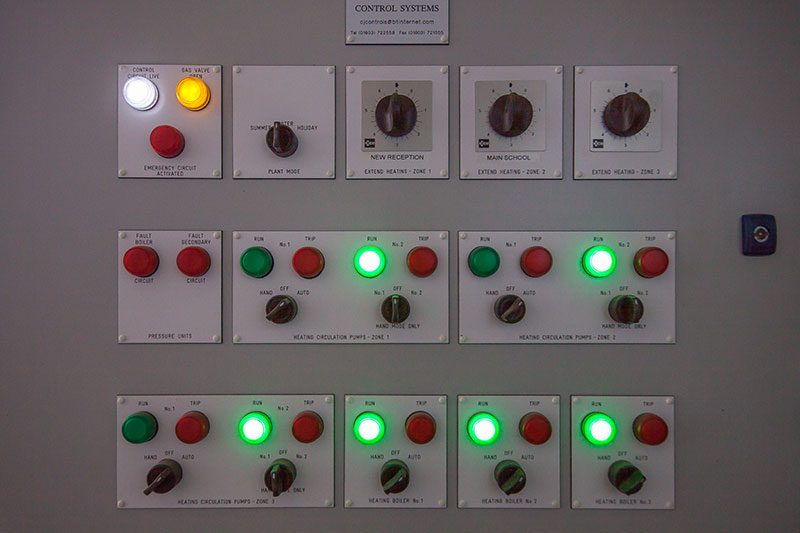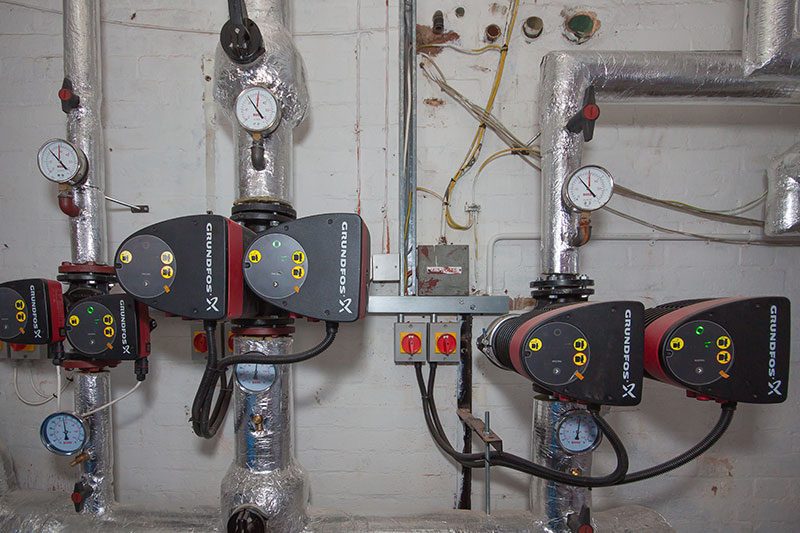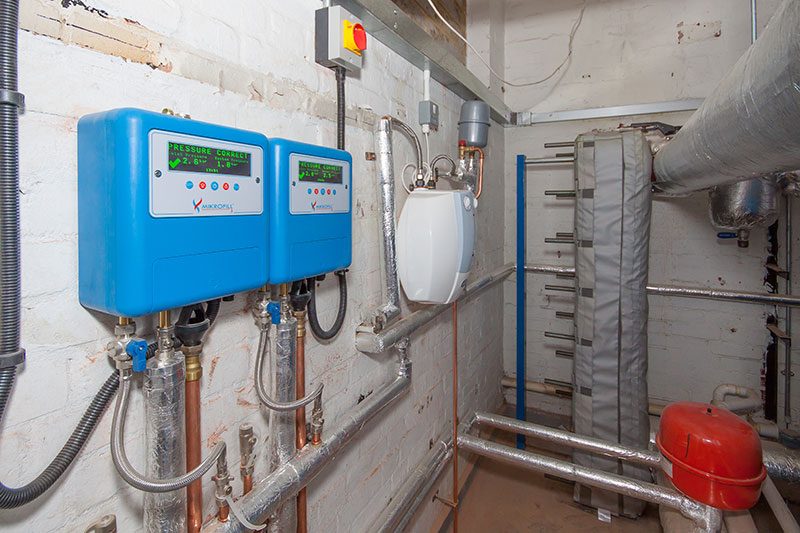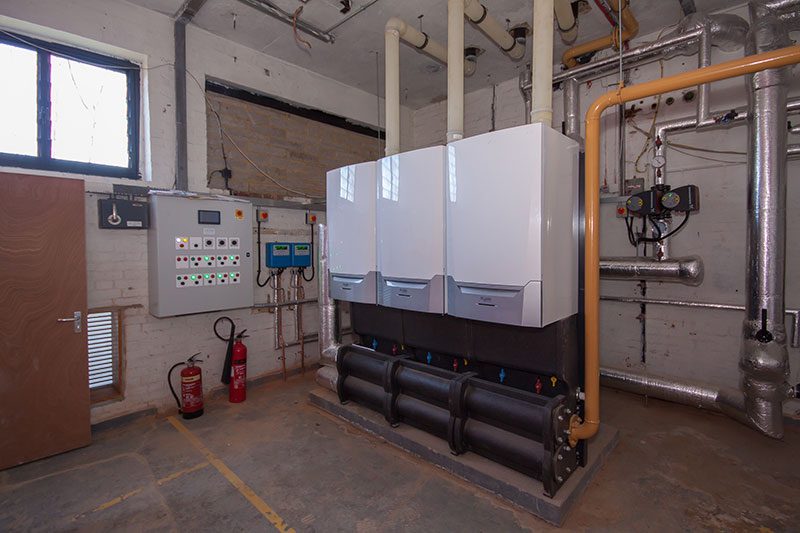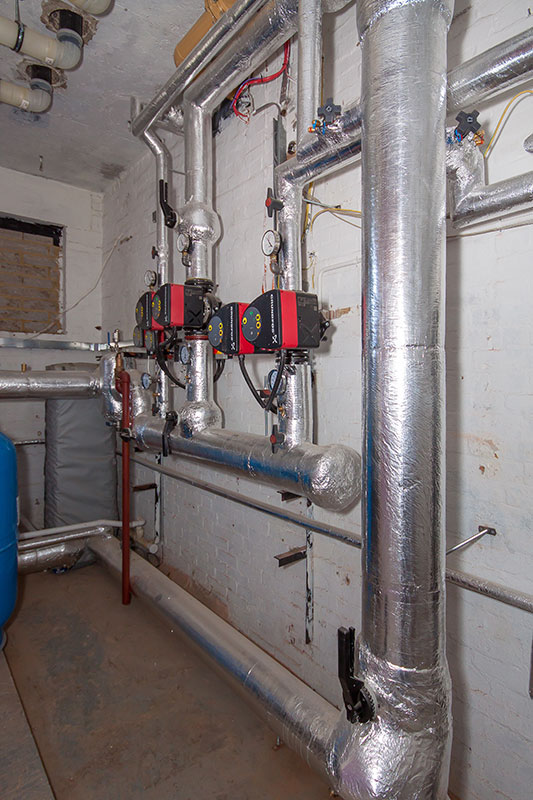Key Facts:
Client Name: Gable Hall School (Part of the ORTU Federation)
Location: Corringham, Essex
Type of client: Secondary Academy
Services provided by M+C: Building Surveying | Planning Services | Procurement | Project Management | Funding Application
Value: £329, 273
Contractor: Heatflow Mechanical
Gable Hall are a secondary academy based in South East Essex. They form part of the ORTU federation along with Hassenbrook Academy and Corringham Primary Academy. The school is performing well and is a popular choice for parents in the area. In addition to the 11-16 cohort, the school also has a thriving sixth form, generating excellent academic results.
The school’s buildings date from the mid 1960’s, with many of the original fixtures and fittings still in situ. The Ortu Federation have instigated a program of refurbishment to address these issues. However, with school budgets as tight as they are, funding is a constant point of pain.
The school engaged M+C’s services to prepare a bid for CIF funding for an urgent replacement of their ailing heating and water distribution system. At over 60 years old, it had exceeded it’s useful life, and posed a significant risk of legionella infection. Furthermore, the school were spending significant sums annually on maintenance and repair as well as inflated running costs.
Heating Issues
Although not the original plant, the heating boiler and controls were around 25-30 years old. The gas fired boiler and electric pumps, wasted a great deal of energy due to their inefficiency, and the electrical elements were non-compliant rendering the school’s insurance cover void. In addition, the failing pipework was causing leaks and water damage throughout the school.
Water Distribution Issues
M+C, commissioned a condition survey to ascertain the specific problems with the existing set-up. They discovered that the pipework was showing signs of heavy corrosion and was in a fragile state. This meant that not only were there numerous points of failure, causing leaks around the school, but also the fragile nature of the pipes made repairs difficult and ineffective. The hot water heating and distribution method was particularly inefficient, as it pumped hot water around the building, waiting for the end user to open an outlet. Inadequate pipe insulation resulted in significant heat loss between the boiler and the outlet. Furthermore, the method of storing cold water in tanks around the building ready for use invited the build up of scale, and required costly annual maintenance to manage legionella risks.
Solution
To address these issues, M+C designed a new water distribution network, including boiler replacement. The design team’s recommendation was to complete the works in two phases, with each phase representing approximately half of the school buildings. Not only would this keep disruption to a minimum, it would also strengthen the funding application to split the total cost of the project across two funding rounds. Additionally, phasing the project this way removed the (albeit very small) risk of leaving the whole school without services for any period of time. The works for completion in phase one were:
- Removal of the aged defective hot and cold water distribution pipework from the phase one areas of the school
- Disconnect and decommission the existing cold water storage tanks
- Supply and install new cold water pipe network throughout with connection to the school’s mains water supply, removing the need for cold water storage and associated maintenance/servicing
- Retain the hot water clarifier for the kitchen hot water supply only
- Supply and install localised point of use electric hot water heaters, supplied by the new mains cold water distribution. This addressed the efficiency issues with the current system
- Boiler replacement with upgraded controls for more efficient plant, thus making considerable energy cost savings on heat distribution throughout the phase one area of the school
Funding Application
M+C supported the school with their CIF funding application from start to finish. In addition to helping them collate the required supporting evidence, they managed the tender process, to enable the school to demonstrate cost certainty. Heatflow Mechanical made the most competitive tender submission, and their costs formed the basis of the funding request. Further to the requested CIF monies, the energy savings generated by the new system enabled the school to pursue a Salix loan for part of the project cost. The funding application was successful and work was able to commence in the summer term 2017.
Project Delivery
Works commenced on site at the end of the summer term. M+C’s project management team prioritised the boiler room works during term-time as this would have minimal impact on learning. Therefore, the more challenging and disruptive aspects of the project were able to take place during the summer break. The project completed within schedule and M+C handed over to the school in time for the new school term to commence in September 2017.

